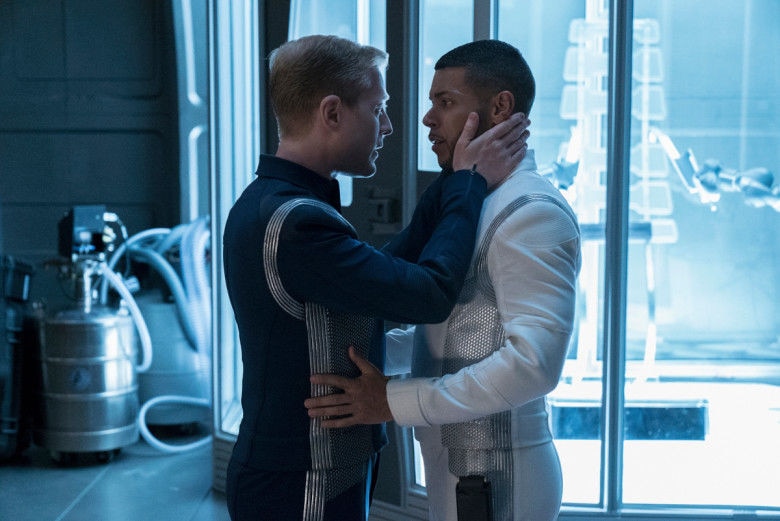Create a free profile to get unlimited access to exclusive videos, sweepstakes, and more!
Genre actors talk LGBTQ representation on TV, importance of showing 'queer joy'

It's almost like we're still there: “I can hear all the Hall H screams as if we were actually in San Diego!” moderator Jim Halterman (TV Guide Magazine) joked to kick off Comic-Con@Home’s “LGBTQ Characters of Television” panel Thursday evening.
Halterman, however, wasn’t wrong — the amazing slate of actors pulled together for this virtual event included Jamie Chung (Once Upon A Time), Jamie Clayton (Roswell: New Mexico, Sense 8), Wilson Cruz (Star Trek: Discovery), Tatiana Maslany (Orphan Black, Perry Mason), Anthony Rapp (Star Trek: Discovery), J. August Richards (Council of Dads), Harry Shum, Jr. (Shadowhunters) and Brian Michael Smith (9-1-1: Lone Star). It’s a lineup that would make any fan excited, and the participants brought their passion and insights to the forefront, no small feat in this new virtual environment.
After friendly greetings to one another, the panelists started off talking about their past and current experiences playing LGBTQ roles on television, and how that has impacted them both personally and professionally. “People ask me all the time, ‘When was the first time I saw myself represented on television,’ and I always say, it was when I saw myself on television,” Cruz explained, referring to when he played the character, Rickie Vasquez, on My So Called Life over 25 years ago.
Other panelists agreed with Cruz, although their experience being one of the first actors to represent their identity on television came much more recently. “The writers room didn’t have any trans people in it,” Smith said, talking about his role on 9-1-1: Lone Star. “But they were willing to listen to me and let me take the lead when we were delving into [his character's dating] storyline, which is something I deeply appreciated. One thing I thought was important was to say we don’t have to bring this up every time. Let the audience forget, and only talk about it unless we need to talk about it. Because again, they can just walk in my shoes so when it comes up, then the audience has to deal with it almost in the same way that I have to deal with it, where it really doesn’t come up, until it comes up. And I thought that was brilliant in navigating the dating episode.”
Check out the full panel here:
Smith’s recounting of his experience was applauded by the rest of the panel as an example of why it’s so valuable to have LGBTQ representation both in front of and behind the camera. When they looked toward the future, they all agreed that it would be great to have not only more intersectionality in queer representation, but also to have LGBTQ characters not spend all of their time on-screen dealing with the societal challenges that may come with their identity. “Queer POC joy right now is a revolutionary act,” Cruz said. “I want to see more of that. I want to see more of our joy. I want to see more people of color who are queer in joyful situations. And I’m happy to report we’ll be seeing more of that on Star Trek: Discovery.”
Clayton closed out the panel by also expressing a desire for more representation in all parts of TV production, not just the writers room or on-screen. “I would love to go to crafting and see a trans person at crafting; I would love for a lighting person to be trans,” she said. “I would love to not feel so alone. So it’s twofold: it’s getting us in the room for all kinds of roles — don’t bring me in just to tell a transition story, bring me in because I’m good at what I do. And then also,” she said with a smile, “get me an assistant who’s trans.”
Click here for SYFY WIRE's full coverage of Comic-Con@Home 2020.


























